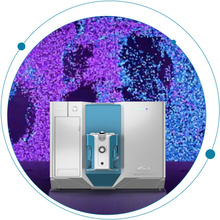When saving data or result table to a network share
Tags
Loss the contact closure signal
our 7600 couple with nanoLC Ultimate 3000 via contact closure. it has run without any loss connection during the batch. Just yesterday, the last injection keep equilibrating system until the LC finished the gradient run. We closed the software and power off LC and MS then started again but it did not help. The Dionex engineer also checked their LC and triggerring cable found both are ok.
Assess the performance of the Echo® MS system
To obtain the best, most reproducible results using the Echo MS system, it is important to select the best solvent for your analyte and matrix and to ensure the flow rate is optimized for your solvent. Please review this flow rate optimization community post to...
Excel macro for plate building for transformation of 96-well to 384-well plates with generation of batch lists for SCIEX OS software
This macro-enabled workbook is designed to help with creating a formatted analysis list for the Echo® MS system, using 96-well plate maps or lists
Uploading data for use in OneOmics suite
There are two options for data storage when working with the OneOmics suite. You can store your data either within the SCIEX Cloud platform in the Data Store, or you can store data in BaseSpace (Illumina) and link your BaseSpace account with the SCIEX Cloud platform....
What is the difference between MRM3 vs MS/MS/MS (MS3)?
The MRM3 workflow and the MS3 scan are functionally the same QTRAP system scan, but used with different goals in mind. The main difference is how these scans are used in the whole MS workflow. With MS3 scans, you can use these in a data dependent mode for discovery...
Quickly compare identification results from ProteinPilot software
When a ProteinPilot Software search is complete, a ProteinPilot report is generated that contains all the false discovery rate (FDR) analysis information. More information on using the large and small ProteinPilot reports can be found here When doing method...

Breaking down the SCIEX Triple Quad™ 7500 LC-MS/MS System – QTRAP® Ready
Sensitivity and robustness carry different meanings in the world of mass spectrometry. Generally, sensitivity refers to an instrument’s ability to achieve lower limits of detection (LOD). Robustness, on the other hand, refers to an instrument’s ability to consistently...

A rising star in food allergen research: proteomics of shellfish allergen
It’s important to know what you’re eating, especially if you suffer from a food allergy.
About 220 million people worldwide live with a food allergy.1 These numbers, along with the complexity and severity of conditions, continue to rise. In America, there are about 32 million food allergy sufferers—5.6 million of those are children under the age of 18.2.2 That’s 1 out of every 13 children, or about 2 in every classroom. From a financial perspective, the cost of food allergy childcare for US families is up to $25 billion
No Results Found
The page you requested could not be found. Try refining your search, or use the navigation above to locate the post.
No Results Found
The page you requested could not be found. Try refining your search, or use the navigation above to locate the post.



 Contact Support
Contact Support